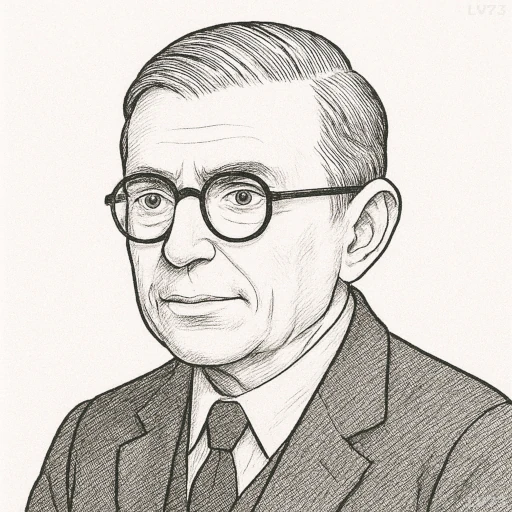“Every age has its own poetry; in every age the circumstances of history choose a nation, a race, a class to take up the torch by creating situations that can be expressed or transcended only through poetry.”

- June 21, 1905 – April 15, 1980
- Born in France
- Philosopher, novelist, playwright
table of contents
Quote
“Every age has its own poetry; in every age the circumstances of history choose a nation, a race, a class to take up the torch by creating situations that can be expressed or transcended only through poetry.”
Explanation
In this quote, Sartre explores the idea that poetry is not just an art form, but a response to the historical and social conditions of its time. According to Sartre, each era is defined by specific circumstances—be they political, cultural, or economic—that create unique challenges, struggles, and aspirations. Poetry, in this sense, becomes a tool for expressing or transcending those circumstances, offering a way for a nation, race, or class to give voice to its experiences, hopes, and frustrations. Sartre’s idea is that poetry is deeply connected to the social fabric of a time, serving as both a reflection of and a response to the collective consciousness and the tensions that define an era.
By saying “the circumstances of history choose a nation, a race, a class to take up the torch,” Sartre emphasizes that history selects those who will be most affected by its forces and, by extension, those who will articulate those experiences through poetry. In this way, poetry is not just an aesthetic or individual expression, but a collective one that rises from the necessity of addressing the deep struggles of a society. The torch symbolizes the responsibility to speak on behalf of the broader human condition, to articulate truths that cannot be fully expressed in conventional language or through other means. In this sense, poetry is both a product and a catalyst of historical change, capable of shifting perspectives and helping people navigate or even transform the situations they face.
In modern contexts, this quote resonates with how art and literature often emerge in times of social upheaval or political change. Whether in the form of protest poetry, revolutionary writing, or cultural movements, poetry has historically been a tool for expressing the discontent and aspirations of marginalized or oppressed groups. From the Harlem Renaissance to post-colonial literature, poetry continues to be a vital means of both expressing the unique circumstances of a particular time and transcending them, offering a vision of the future or an alternative reality. Sartre’s insight reminds us that poetry, and by extension all art, is often not just a personal pursuit but a social responsibility tied to the collective struggles of a people.
Would you like to share your impressions or related stories about this quote in the comments section?



